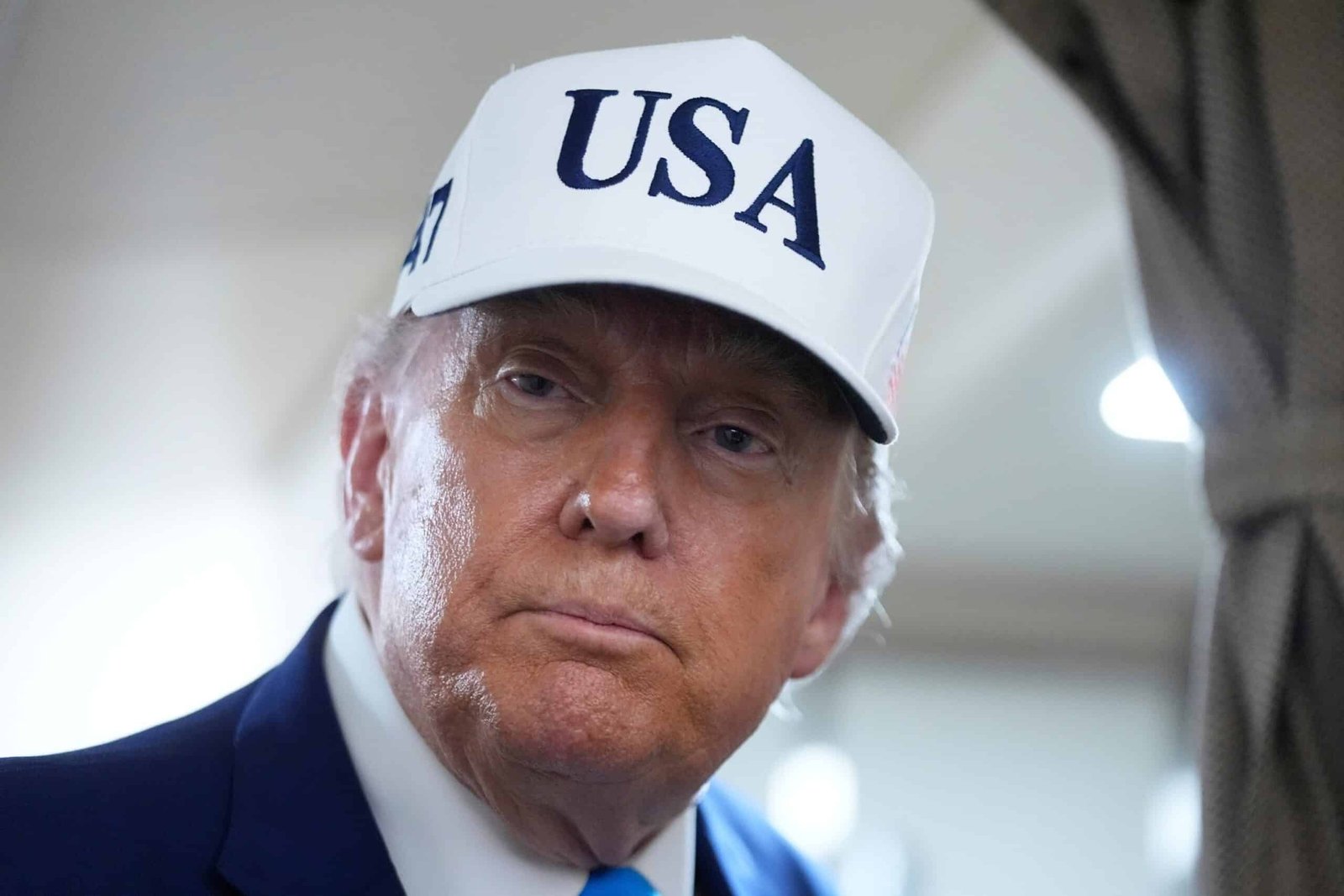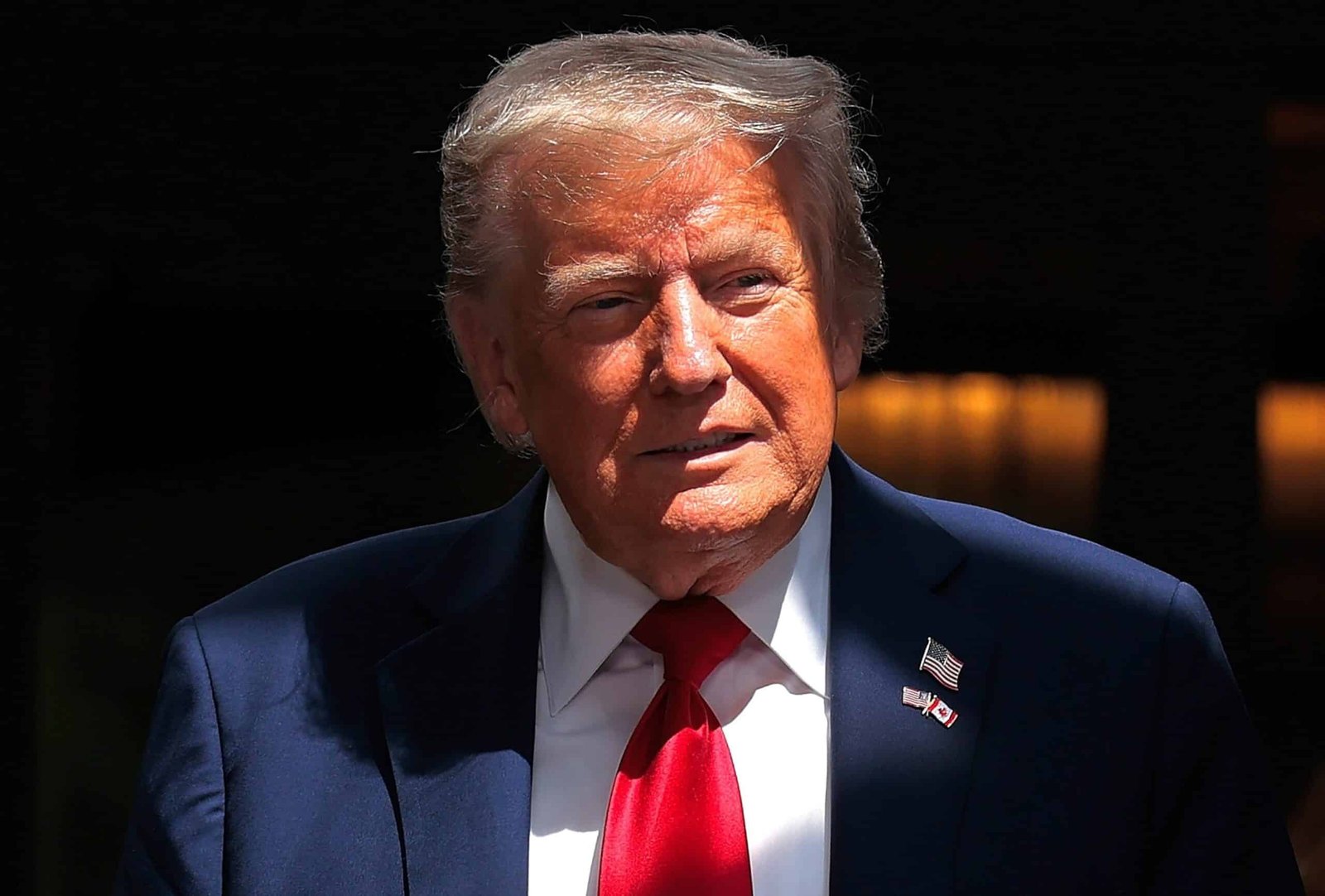The White House launched on Friday the budget proposed by President Donald Trump for fiscal year 2026, which requires $ 163 billion in cuts to federal expenses.
The director of the Office of Management and Budget, Russell Vought, in a letter to Congress together with the proposal, said the cuts to discretionary financing would lead to “significant savings.”
“The President proposes the non-defense authority authority of $ 163 billion, 22.6 percent below the year-year expense, while protecting funds for national security, veterans, older adults, the application of law and infrastructure,” Vought wrote.
While budget proposals are essentially a list of desires for the administration, they serve to illustrate the president’s priorities and what the White House awaits is a starting point for negotiations with Congress.
The proposed cuts would come from the Department of Education, the Department of Health and Human Services, USAID and the Environmental Protection Agency, among others.
However, Trump is proposing a 13% increase to defense spending to take it to $ 1.01 billion for the next fiscal year, Vought said.
The administration also proposes $ 175 billion to go to the southern border and $ 134 million to strengthen the application of trade.
Trump’s proposal was received with the criticisms of Republican Senator Roger Wicker, president of the Senate Armed Services Committee, who backed down the White House account about defense spending.
“For the defense budget, OMB has requested a fifth consecutive year of Biden administration, leaving flat military spending, which is a cut in real terms,” Wicker wrote in a statement.
“OMB does not request a budget of billion dollars. It is requesting a budget of $ 892.6 billion, which is a cut in real terms. This budget would reduce the military options of President Trump and his negotiation leverage,” Wicker said.

President Donald Trump arrives to give a graduation speech at the University of Alabama, on May 1, 2025, in Tuscaloosa, Ala.
Manuel Balce Ceneta / AP
Several Republicans who have not been afraid to challenge President Trump also issued critical statements on his budget application.
Senator Susan Collins, president of the Senate Assignments Committee, said she has “serious objections to freezing proposed in our defense funds given the challenges we face the cuts of proposed funds, and in some cases the elimination of programs such as Liheap, Trio and those that support biomedical research.
“Ultimately, it is the congress that has the power of the bag,” he said.
Senator Mitch McConnell, who presides over the subcommittee of the Senate Assignments in Defense, also worried about defense spending numbers in Trump’s proposal.
“The United States cannot expect our allies to pay attention to the calls of a greater annual defense if we are not willing to lead with the example. Fortunately, the requests for presidential budget are only that: the applications. Congress will soon have the opportunity to ensure that American power, and the credibility of our commitments is appropriately resources. I hope and I hope that my colleagues join me in the national security of the United States.
Senator Patty Murray, the main Democrat in the Senate Assignments Committee, said alarm that the application could severely reduce the programs in which many Americans trust.
“President Trump has made clear his priorities such as the day: he wants the fault programs that help working Americans while pating mass tax sandwiches to billionaires such as him and collect taxes on middle -class Americans with their reckless tariffs,” Murray said in a statement.
“This preliminary budget proposal is exceptionally light on the details we desperately need, but this is clear: Trump wants to eviscerate programs that import the most working families,” Murray said.
Where Trump’s 2026 budget proposal would reduce financing
The budget proposal points to the programs that the Administration has attacked in the past.
It would reduce funds in the alcohol, tobacco, firearms and explosive (ATF) office, which according to a senior White House official had “abusive regulatory decrees” in arms owners. The cuts would also be reserved for the Internal Tax Service (IRS), which the officer said it is used to “address conservative organizations.”
The budget also requires huge cuts in the Department of Health and Human Services, even for programs in the Centers for Disease Control and Prevention (CDC), the Administration of Mental Health Services and Substance Abuse (Samhsa). It also has many cuts in the Environmental Protection Agency (EPA).
The proposed budget also eliminates USAID foreign aid, instead of putting some foreign help under the state department budget.
There was a notable program that the administration is looking to gut: a benefits program called Liheap, which helps subsidize energy invoices for low -income people in the United States.
The fund cut for this program also goes against one of the promises of President Trump’s campaign that he will reduce energy bill for Americans on day 1. A senior White House official, when asked about the cuts proposed to Liheap, said there was abuse and fraud related to the program.
“We do not need a hammock of benefits that keep people out of the workforce. Therefore, Liheap is actually one of our fairly critical reductions to achieve many trying to make people return to work and deal with excess of that, of that benefit,” said Senior White House.
Alexandra Hutzler of ABC News contributed to this report.



